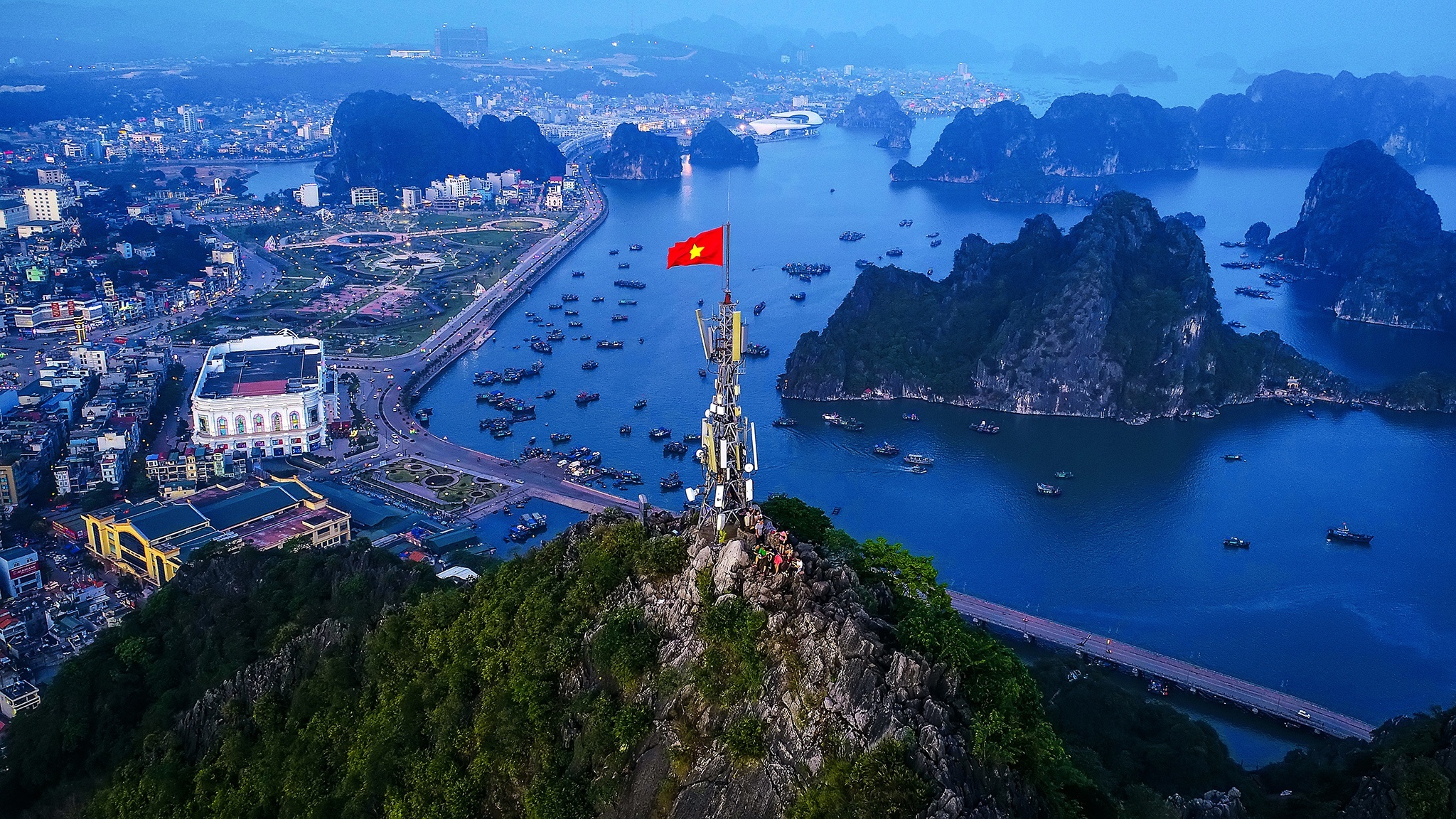Key tasks in implementing the National Marine Spatial Planning in Vietnam for the period 2021-2030
The National Marine Spatial Planning in Vietnam for the period 2021-2030, with a vision to 2050, includes five key tasks.

Key tasks in implementing the National Marine Spatial Planning in Vietnam for the period 2021-2030 (Image from the Internet)
Key tasks in implementing the National Marine Spatial Planning in Vietnam for the period 2021-2030
In Resolution 139/2024/QH15 on National Maritime Spatial Planning for the Period 2021-2030, with a vision towards 2050, approved by the National Assembly, the objective is to establish a foundation for the rapid and sustainable development of the maritime economy, contributing to the formation and development of strong maritime economic sectors, creating effective livelihoods for the people; ensuring national defense, security, foreign relations, and international cooperation; maintaining independence, sovereignty, sovereign rights, jurisdictional rights, and national interests at sea; efficiently managing and exploiting resources, protecting the environment, conserving biodiversity, and preserving marine cultural values, step-by-step making Vietnam a strong and prosperous maritime nation.
Some of the key tasks set out include:
(1) Completing the institutional framework and policies: Developing mechanisms, policies, laws, criteria, and regulations to address arising issues in overlapping areas and conflicts in the exploitation and use of maritime space; completing policies for the development of clean energy, renewable energy, and new maritime economies linked with the implementation of Vietnam's sustainable maritime economic development strategy; issuing guidelines and regulations for local-level maritime spatial zoning;
(2) Developing the maritime economy: Building maritime infrastructure with a focus on key areas such as seaports, and transportation links between seaports and the mainland, maritime communications, digital economic infrastructure, etc.; developing a comprehensive system of airlines, railways, roads, sea routes, and inland waterways between coastal and non-coastal localities and connecting with other countries; strongly developing maritime economic sectors, especially aquaculture and marine exploitation linked with marine conservation and ensuring national defense, security, foreign relations, and international cooperation; sustainably developing the maritime economy, sea transport, building new shipbuilding and repair facilities, maritime services, tourism, and maritime services; rapidly developing coastal urban systems and islands to create strong economic logistics centers, genuinely becoming driving forces for socio-economic development in each region; research and comprehensively evaluate the potential and develop orientations for sustainable exploitation and use of marine minerals, clean and green energy from the sea;
(3) Developing culture and society: Building infrastructure and cultural institutions for the sea and islands; organizing effective maritime cultural activities, improving the cultural and social life of inhabitants in marine and island regions; organizing propaganda and raising awareness and responsibility about building a strong maritime nation, wealthy from the sea, according to the sustainable maritime economic development strategy, effectively organizing the Vietnam Sea and Island Week;
(4) Protecting the marine and island environment: Controlling and managing waste sources and addressing environmental pollution hotspots in the sea, coastal lands, and islands; delineating marine, coastal, and island protected areas; restoring degraded ecosystems to increase areas of marine and environmental protection;
(5) Developing resources: Strengthening basic investigations of marine and island resources and the environment; establishing a digitized database on sea and islands, ensuring integration, sharing, and updating; enhancing marine human resource training, prioritizing the development of human resources in maritime, aquaculture, renewable energy, tourism, science, and marine technology sectors; strengthening scientific research and technological application for potential new maritime economic sectors such as marine pharmaceuticals, marine medicine, marine chemistry, and new materials; boosting the attraction and mobilization of resources from economic sectors, especially private economies and foreign-invested economies.
- Key word:
- marine spatial planning
- marine spatial
- Vietnam
- Number of deputy directors of departments in Vietnam in accordance with Decree 45/2025/ND-CP
- Cases ineligible for pardon in Vietnam in 2025
- Decree 50/2025 amending Decree 151/2017 on the management of public assets in Vietnam
- Circular 07/2025 amending Circular 02/2022 on the Law on Environmental Protection in Vietnam
- Adjustment to the organizational structure of the Ministry of Health of Vietnam: Certain agencies are no longer listed in the organizational structure
- Vietnam aims to welcome 22-23 million international tourists in Vietnam in 2025
-

- Number of deputy directors of departments in Vietnam ...
- 15:04, 05/03/2025
-

- Cases ineligible for pardon in Vietnam in 2025
- 14:43, 05/03/2025
-

- Decree 50/2025 amending Decree 151/2017 on the ...
- 12:00, 05/03/2025
-

- Circular 07/2025 amending Circular 02/2022 on ...
- 11:30, 05/03/2025
-

- Adjustment to the organizational structure of ...
- 10:34, 05/03/2025
-

- Notable new policies of Vietnam effective as of ...
- 16:26, 11/04/2025
-
.Medium.png)
- Notable documents of Vietnam in the previous week ...
- 16:21, 11/04/2025
-
.Medium.png)
- Notable documents of Vietnam in the previous week ...
- 16:11, 02/04/2025
-
.Medium.png)
- Notable new policies of Vietnam to be effective ...
- 16:04, 02/04/2025
-
.Medium.png)
- Notable new policies of Vietnam effective from ...
- 14:51, 21/03/2025

 Article table of contents
Article table of contents
